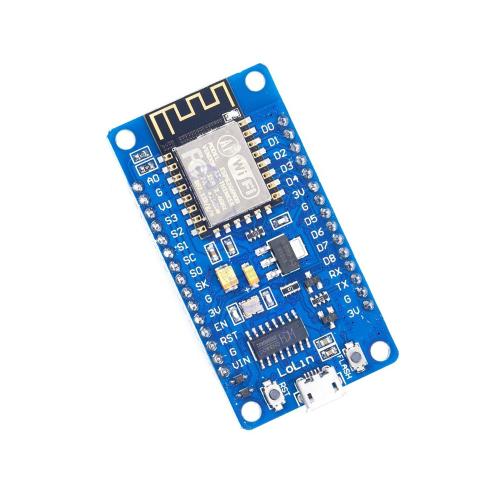The Global Navigation Satellite Systems (GNSS) like GPS suffer from accuracy degradation and are almost unavailable in indoor environments. Indoor positioning systems (IPS) based on WiFi signals have been gaining popularity. However, owing to the strong spatial and temporal variations of wireless communication channels in the indoor environment, the achieved accuracy of existing IPS is around several tens of centimeters. We present the detailed design and implementation of a self-adaptive WiFi-based indoor distance estimation system using LSTMs. The system is novel in its method of estimating with high accuracy the distance of an object by overcoming possible causes of channel variations and is self-adaptive to the changing environmental and surrounding conditions. The proposed design has been developed and physically realized over a WiFi network consisting of ESP8266 (NodeMCU) devices. The experiment were conducted in a real indoor environment while changing the surroundings in order to establish the adaptability of the system. We introduce and compare different architectures for this task based on LSTMs, CNNs, and fully connected networks (FCNs). We show that the LSTM based model performs better among all the above-mentioned architectures by achieving an accuracy of 5.85 cm with a confidence interval of 93% on the scale of (4.14 m * 2.86 m). To the best of our knowledge, the proposed method outperforms other methods reported in the literature by a significant margin.
翻译:全球导航卫星系统(GNSS)类似于全球定位系统,在室内环境几乎无法使用。基于无线网络信号的室内定位系统(IPS)越来越受欢迎。然而,由于室内环境中无线通信频道在空间和时间上差异很大,现有无线通信频道的准确性在室内环境周围有几十厘米左右。我们用LSTMS介绍了基于自适应的无线网络室内距离估计系统的详细设计和实施情况。该系统在通过克服频道变异的可能原因来高精确地估计物体距离的方法方面是新颖的。该系统对不断变化的环境和周围条件具有自我适应性。拟议的设计是在由ESP8266(NodeMCU)装置组成的无线网络上开发和实际实现的。实验是在真正的室内环境中进行的,同时用LSTMS、CNNS和完全连接的网络来修改基于自适应的室内距离估计系统。我们采用不同结构,根据LSTMS、CNS和完全连接的网络(FCNs)来进行这种评估。我们发现,基于LSTM的模型在所报告的所有文献中都较好地表现了不断变化的环境,即以9千米的模型为9千米。我们所报告的最佳模型,即实现了9.85的模型。




